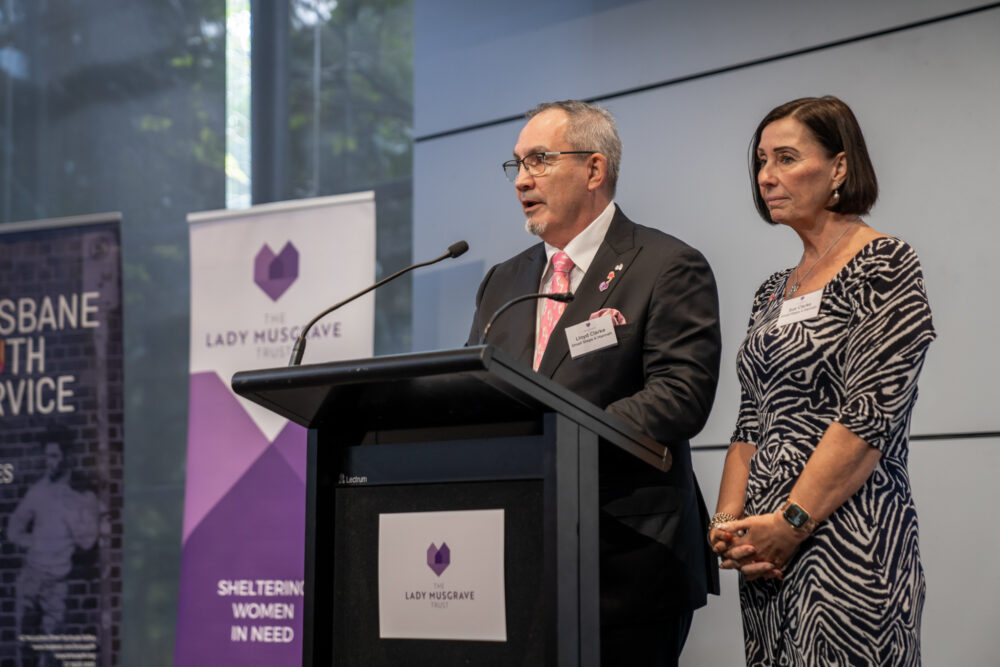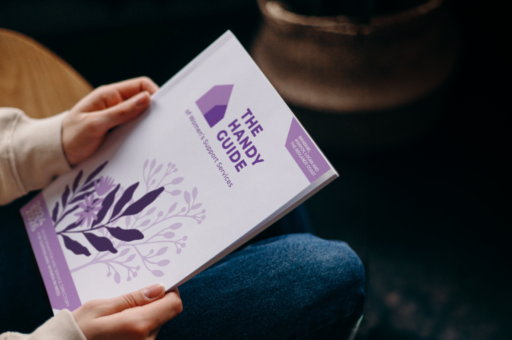
New law marks a significant step towards ending coercive control
Mar 06, 2024
In a landmark move, Queensland has passed historic legislation criminalising coercive control, marking a significant step forward in addressing domestic violence.
Coercive control involves a repeated pattern of behaviour aimed at establishing control over another person, often through fear and intimidation. It is characterised by ongoing and persistent attempts by one partner to undermine the other’s independence, confidence, and sense of safety.
This momentous decision, driven by the tragic deaths of Hannah Clarke and her children, signifies a significant shift in the state's approach to combatting intimate partner violence.
Under the newly approved reforms, coercive control is now classified as a criminal offence, carrying a maximum penalty of 14 years' imprisonment. This decision follows in the footsteps of New South Wales, making Queensland the second state in Australia to recognise coercive control as a stand-alone criminal offence.
Queensland Premier Steven Miles said the historic legislation was a “monumental” announcement for women and girls in the state.
“What we know is that coercive control is the most common factor that leads to domestic violence murders. We have made strides to help people identify and report coercive control and we know by criminalising this offence, even more lives will be saved."
The Clarkes, along with the family of Allison Baden-Clay, who was murdered at the hands of her husband Gerad in 2012, played a huge role in advocating for legislative change, as well as dedicated members of the state's women's Safety and Justice Taskforce.
Sue Clarke expressed emotion as she discussed how her daughter's legacy would serve as inspiration for other states to empower and protect women and children.
“On behalf of Hannah, Aaliyah, Laianah and Trey, we welcome Queensland making a pursuit of justice against coercive control possible,” she said.
“We will continue to speak out until coercive control is criminalised throughout Australia.”
What these new laws mean
The Criminal Law (Coercive Control and Affirmative Consent) and Other Legislation Amendment Bill 2023 – known colloquially as 'Hannah's Law' – will usher in legislative changes that extend beyond coercive control to address vital aspects of domestic and family violence (DFV) prevention.
One notable inclusion is the legal recognition of stealthing, the non-consensual removal of a condom during intercourse, as rape.
The bill will also introduce new jury directions for sexual offense proceedings, restrictions on improper questioning, and establishes a court-based perpetrator diversion scheme.
Under these new laws, the government aims to criminalise the actions of an adult who meets the following criteria:
- The individual is in a domestic relationship with another person.
- The individual engages in a pattern of behaviour against the other person that involves domestic violence on multiple occasions.
- The individual has the intent to coerce or control the other person.
- The course of conduct, considering all circumstances, is reasonably likely to cause harm to the other person, with ‘harm’ defined in the Bill to encompass any adverse impact on the person’s physical, emotional, financial, psychological, or mental well-being, whether temporary or permanent.
The criminalisation of coercive control is set to come into effect in 2025, allowing time for implementation and raising awareness about this crucial issue. This historic victory represents a significant milestone in the ongoing fight against coercive control and its devastating impact on victims in Queensland. It sends a resounding message to perpetrators that coercive control will no longer go unpunished.
Laying the foundations
These reforms build upon the first set of legislative amendments aimed at strengthening Queensland’s response to coercive control.
In February 2023, The Domestic and Family Violence Protection (Combating Coercive Control) and Other Legislation Amendment Bill 2022 passed Parliament, marking a significant milestone in the fight against this destructive behaviour.
This legislation laid the foundation for a standalone offence of coercive control and broadened the definition of domestic and family violence to include behaviour that occurs over time.
“This is a significant step toward achieving our commitment to legislate against coercive control,” said Attorney-General and Minister for Justice, Minister for Women and Minister for the Prevention of Domestic and Family Violence, The Honourable Shannon Fentiman, at the time.
The bill included a comprehensive range of amendments aimed at strengthening the court’s response to domestic violence and ensuring the protection of those most at risk.
These included:
- broadening the definition of domestic and family violence to include behaviour that occurs over time
- modernising the offence of unlawful stalking to better capture the broad range of tactics, such as technology and social media, used by predators
- strengthening the court’s response to applications for protection orders
- bringing domestic violence complainants and other witnesses within the protected witness scheme
- updating some sexual offence terminology, such as 'carnal knowledge' and 'maintaining a sexual relationship with a child'
- broadening the court’s ability to award costs to help prevent using the legal process to further abuse victims
- strengthening the consideration of previous domestic violence or criminal history
- allowing for the giving of jury directions and expert evidence on domestic violence.
These amendments were designed to shift the focus from responding to isolated incidents of violence, to addressing patterns of abusive behaviour.

Shannon Fentiman described this move as a “historic day in Queensland, made possible by the countless advocates and victim-supporters who have shared their experiences and called for change.
“This is about identifying and responding to the red flags of coercive control earlier, before blue police tape surrounds another family home.”
"Thanks to them, these laws will be lifesaving."
Legal protection and support under Queensland’s new laws
While coercive control won't become a standalone criminal offence in Queensland until 2025, victim-survivors of coercive control do have legal remedies available to them.
Civil protection orders under domestic violence legislation are one option, and a breach of such an order can lead to a maximum penalty of 5 years imprisonment or a fine of $34,500. These orders can include restraints on the perpetrator attending the residence or workplace of the victim-survivor, communication, or coming within a certain proximity to the victim-survivor.
Additionally, victim-survivors can be protected by a restraining order in relation to charges of unlawful stalking, intimidation, harassment, or abuse. The new laws mean that the maximum penalty for contravening a restraining order is 3 years imprisonment or a $17,250 fine.
Victim-survivors can also apply for financial assistance from Victim Assist Queensland, which can help pay for expenses such as counselling, medical and dental expenses, loss of earnings, and safety needs.
The government’s commitment to addressing this issue is a positive step towards combating domestic violence in the state, providing much-needed legal protections for Queenslanders, and sending a clear message that this form of domestic violence will not be tolerated.
Police response: A multi-layered approach
For victims of coercive control who report to the police, the Queensland Police Service offers a multi-layered response to domestic and family violence, which includes frontline police, specialist police, and High Risk Teams that work with other government agencies and specialists. As per the Domestic and Family Violence Protection Act, the QPS is mandated to investigate all reports of domestic and family violence it receives.
The QPS provides immediate and ongoing support to victims and has an extensive referral program with over 500 police referral partners to connect victims with the support they need based on their specific situation. Efforts are being made to strengthen the Police Referrals process and information sharing capabilities to enhance victim survivor safety.
By prioritising the identification and response to coercive control, the QPS is taking a crucial step towards creating a safer and more equitable society for all.
Stay informed: Tracking Coercive Control Reforms in Australia
HopgoodGanim Lawyers have created a comprehensive resource that provides a valuable summary of key coercive control reforms currently unfolding across Australia. Serving as a centralised hub for staying informed about the latest developments in combating coercive control, this reform tracker is an essential tool. HopGood Ganim is committed to ensuring the tracker remains up to date, consistently incorporating new reforms as they arise within the realm of intimate partner and family violence settings throughout Australia.
Explore the National Coercive Control Reform Tracker or learn more about Hopgood Ganim’s pro bono legal services.
Available resources
If you, or someone you know, is experiencing coercive control, support is available. There are a range of support services, depending on your situation.
If the incident is happening now, or someone is in immediate danger, contact Queensland Police Service on Triple Zero (000). You can also use this online form to request contact with police.
If you or someone you know is a victim of coercive control and requires legal protection, it is recommended to seek legal assistance to ensure that you receive the protection and support you need during this challenging time. Refer to our comprehensive directory for a list of social support services near you.
Whether you require assistance through the civil protection regime or criminal proceedings, it’s important to seek legal assistance as soon as possible. Your lawyers will be able to help you understand your rights, guide you through the legal process, and work towards securing the protection you need to keep yourself safe.
Other support services available include:
- DV Connect (1800 811 811) is an organisation that provides crisis support and counselling, as well as a women’s refuge service assisting women and children affected by a domestic violence incident to obtain placement into crisis care.
- 1800RESPECT (1800 737 732) is a telephone helpline for friends and family to report if someone they know is experiencing domestic violence.
- Relationships Australia QLD (1300 364 277) is an organisation that provides relationship support and advice to individuals and families across Queensland.
- Mensline (1800 041 612) is a national telephone and online support, information and referral service for men.
- Immigrant Women’s Support Service (07 3846 3490) offers support to immigrant and refugee women from non-English speaking backgrounds and their children who have experienced domestic and/or sexual violence.
- Women’s Legal Service (1800 957 957) and Legal Aid QLD (1300 65 11 88) provides free legal advice and legal support services to victims of domestic violence, including in relation to applications for a domestic violence order, children’s Court matters and Family Law matters generally.
With these resources at your disposal, you can find the assistance you need and be matched with the appropriate professionals to navigate your choices effectively.
As these issues become more talked about in Australia, the easier it becomes to recognise the signs and provide help to victims, survivors, and their families. The Queensland Government's adoption of many of the 89 Coercive Control Taskforce recommendations is a step in the right direction.
“We know from experience that the behaviour of predators escalates over time,” said Sue and Lloyd Clarke. “The Small Steps 4 Hannah Foundation strongly urges people to recognise the red flags in their family members, their friends, and even themselves and to seek help.”
Special thanks to the Family Law and Pro Bono team at HopgoodGanim Lawyers and the Queensland Police Service for their invaluable contributions to this article. Please note that the content of this article is current as of 11 October 2023 and should not be taken as legal advice.




